Please Don't Sue Me
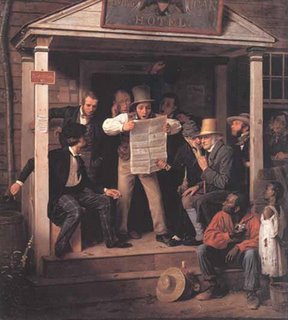 Well, it's all fun and games until someone gets SUED for copyright infringement! Come on guys, what about the hazy, sketchy, ever flexible rights of Fair Use? Huh? My show is educational, yeah, that's the ticket! And I never make a penny off it, so there!
Well, it's all fun and games until someone gets SUED for copyright infringement! Come on guys, what about the hazy, sketchy, ever flexible rights of Fair Use? Huh? My show is educational, yeah, that's the ticket! And I never make a penny off it, so there!
I mean if I was giving away the endings to movies and living in a mansion in Never Never Land off the stolen media profits, well then maybe your lawsuit would have merit but COME ON, I am a pauper living in a basement! So please Mr Fatcat Corporate Lawyer Man, don't sue little ol' me!

This is the YouTube curse: If a clip gets a lot of viewers, it immediately falls under scrutiny -- and if it's copyrighted material, as is often the case, the clip may well be removed, leaving useless links and frustrated viewers in its wake. Asking that clips be removed is a copyright holder's right, of course -- but this scenario raises a host of questions. Is there a level of success video sites dare not rise above, for fear of being sued into oblivion? And are our copyright laws still the right fit for an era where user-generated content is an increasingly important part of both art and daily life? - Jason Fry
Thanks to Jeff for the link to this interesting Wall Street Journal article by Jason Fry about the pitfalls of YouTube popularity (which has also scared the beejesus out of me). Luckily, a minor mention in the Burlington Free Press does not a YouTube celebrity make me. Phew! Still, it is lucky I am broke or I would be shivering in my boots!
It all boils down to an epic struggle between those who hold the rights to media and those who desire to watch or work with this media without paying a small fortune for the privilege. It is a battle being waged on YouTube's not so hallowed ground. And, little and insignificant though I may be, I am in the thick of it because I use copyrighted media clips on my cable access show and post them to YouTube. And one of these days, Mr Fatcat Corporate Lawyer Man may come a knocking...
It is only logical that there needs to be some way to satisfy all parties, right? There is a high demand for the copyrighted media so it seems simple enough to find a way to get the media to the people who want to see it, and make a little profit for the copyright owners in the bargain. But it is, sadly, not as easy as all that. I covered some of these sticky copyright topics in my GoogTube video (see video here).
It does make you wonder though, what was life like before all this media nonsense? How the hell did we ever manage to pass the time without the internet? Hmmmm.... cloud gazing no doubt...
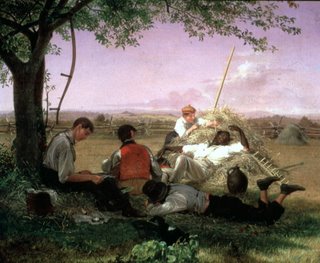
Content owners have rights, no matter how Neanderthal some may feel they are in exercising them. They have a right to defend their copyrights, even if that means passing up additional exposure for their content. They have the right to pursue their own content strategies, no matter how fragmented or inelegant or theoretical those may be. They have the right to do nothing with their content, even if that seems like a shame. Moreover, there's a certain coercion at work in Google Book Search (which I'm a fan of, by the way), YouTube and other popular models that claim to be better methods of disseminating information that serve a greater good.
But having said all that, one can't help feeling that something is askew, that the legal black and white is missing something vitally important.
Maybe a little coercion is what's needed -- particularly when the balance between content owners' rights and the public good seems increasingly out of whack. Lawrence Lessig opens "Free Culture," his superb book on copyright and creative control in the Internet age (see more here), with the Supreme Court's 1945 decision ruling that aircraft weren't trespassing on the property of the Causbys, a North Carolina farm family, despite long-established law declaring that property rights extended to "an indefinite extent, upwards." Such a doctrine "has no place in the modern world," wrote Justice William Douglas, who imagined near-infinite trespass suits against airline operators and concluded that "common sense revolts at the idea."
So it is here. Digital technology has exploded the old paradigm of content being handed to us at a set time in a set format. We now increasingly repackage media to suit ourselves – time-shifting it with TiVo, clipping it with video-editing software or remixing it for other purposes, and posting it with YouTube. That transition is a wrenching one for content creators, and we shouldn't expect them to surrender how that content is used without compensation or discussion. But it certainly suggests that the old doctrines have less and less place in the modern world, and shouldn't be kept alive solely through the brute force of lobbying and litigation.
Even if your taste doesn't run to art assembled from digital footage, YouTube is increasingly the new digital watercooler of office, bar and living-room discussions. If you missed out on last night's big event, you can catch up on YouTube. (And, increasingly, many people see such events for the first time there.) Doesn't that have some value as well? - Jason Fry
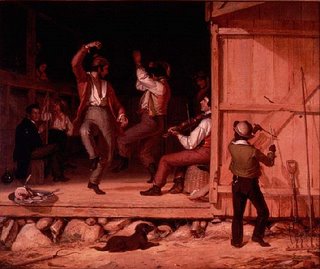
We could spend decades working through the thickets of rights issues, with the risk of a few holdouts wrecking the entire thing through litigation. We could endure a long game of intellectual-property Whack-a-Mole, in which YouTube is ruined by litigation, then replaced by a new video-sharing site that catches the public imagination until it too gets too big to survive a legal barrage, and lather, rinse, repeat -- all as links go dead and exchanges of ideas are stifled.
We could settle for that. But as Justice Douglas once did, perhaps we should wonder if this legal tangle has a place in the modern world. There has to be another way. - Jason Fry
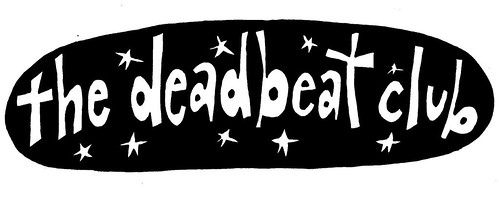


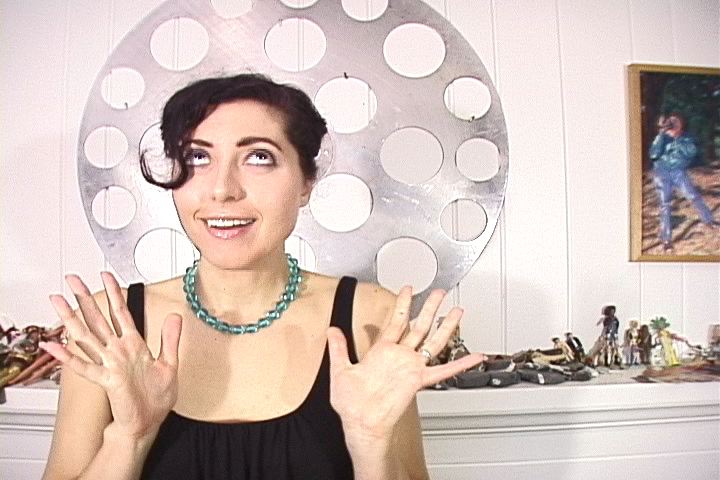
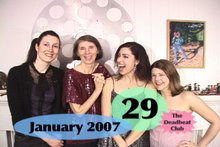






No comments:
Post a Comment